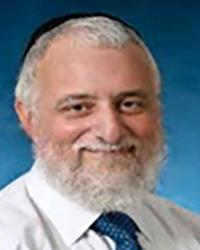Research Lab Results
-
Eliseo Guallar Lab
Research in the Eliseo Guallar Lab focuses on the epidemiology and prevention of cardiovascular diseases. We have a special interest in the roles played by mercury, arsenic, lead and cadmium in cardiovascular disease development. Our methodological interests include determining threshold effects in epidemiological studies and applying statistical methods to epidemiological problem-solving.
-
Kathleen Gabrielson Laboratory
Research in the Kathleen Gabrielson Laboratory focuses on the signal transduction of cardiovascular toxicities in vitro, in cardiomyocyte culture and in vivo using rodent models. Specifically, the research focuses on understanding the mechanisms of various cancer therapies that induce cardiac toxicities. Currently, we are testing prevention strategies for these toxicities by studying the cardiac effects of the anthracycline doxorubicin (adriamycin) and the immunotherapeutic agent, Herceptin, anti-erbB2. We are focusing on the signal transduction pathways in the heart that are modulated by anti-erbB2 treatment, which in turn, worsens doxorubicin toxicity. Thus, understanding the mechanisms behind the combined toxicity of doxorubicin and anti-erbB2 will pave the way for the design of strategies to reduce toxicity, identify patients at risk and potentially allow higher levels of this effective combination therapy to be used with an improved long-term survival in patients.
Principal Investigator
Department
-
Komatsu Lab
Malfunction and malformation of blood vessels are associated with a broad range of medical conditions, including cancer, cardiovascular diseases, and neurological disorders. The ultimate goal of the Komatsu lab is to find a way to reverse the process of abnormal vessel formation and restore normal function to these vessels. In cancer, normalization of tumor blood vessels facilitates lymphocyte infiltration, potentiating anti-tumor immunity, and enhances the efficacy of immunotherapies as well as conventional cancer treatments. Normalization of regenerating blood vessels is also necessary for reestablishing blood flow to ischemic hearts and limbs, and preventing blindness caused by diabetic retinopathy or macular degeneration. Komatsu lab’s research is uncovering key molecular pathways important for the normalization of pathological vasculature.
-
Kayode Williams Lab
The Kayode Williams Lab conducts translational research on neuromodulation. We primarily examine the mechanisms and efficacy of spinal cord stimulation in treating neuropathic pain, peripheral neuropathies and peripheral vascular disease. Our clinical trials explore spinal cord stimulation in the treatment of painful diabetic neuropathy and the treatment of critical non-reconstructible critical leg ischemia. We also have a longstanding interest in the business of medicine and seek to enhance value propositions for hospitals and physician groups through more effective management of resources.
-
Lakshmi Santhanam Lab
Investigators in the Lakshmi Santhanam Lab examine the fundamental mechanisms behind cardiovascular disease. They are particularly interested in better understanding how nitric oxide-mediated S-nitrosylation (a post-translational protein modification) impacts protein function and trafficking in the vasculature as well as how this relationship influences matrix remodeling and vascular stiffening.
-
Lisa Yanek Lab
Research in the Lisa Yanek Lab focuses on cardiovascular disease in families and risk factor modification. Recently, we conducted a study to determine the association of lean versus fat mass with fitness in healthy, overweight and obese African Americans from families with early-onset coronary disease.
-
Lima Lab
The Lima Lab’s research is concentrated on the development and application of imaging and technology to address scientific and clinical problems involving the heart and vascular system. Specifically, our research is focused on developing magnetic resonance imaging (MRI) contrast techniques to investigate microvascular function in patients and experimental animals with myocardial infarction; functional reserve secondary to dobutamine stimulation and myocardial viability assessed by sodium imaging; and cardiac MRI and computed tomography (CT) program development of techniques to characterize atherosclerosis in humans with cardiovascular or cerebrovascular disease. Current projects include: • The Coronary Artery Risk Development in Young Adults (CARDIA) Study • The MESA (Multi-Ethnic Study of Atherosclerosis) Study • The Coronary Artery Evaluation using 64-row Multidetector Computed Tomography Angiography (CORE64) Study Joao Lima, MD, is a professor of medicine, radiology and epidemiology at the Johns Hopkins School of Medicine. -
Lewis Romer Lab
Work in the Lewis Romer Lab focuses on the responses of vascular systems to disease and injury. Using cultured human endothelial cells and fibroblasts from mice that lack expression of the FAK- or Src-family kinases, we’re exploring several topics. These include the effect of inflammatory cytokine on cell adhesion to the extracellular matrix; the role of FAK signaling in inhibiting apoptosis; and the function of FAK- and Src-family kinases in cell-matrix interactions during adhesion and motility. -
Lee Bone Lab
Research in the Lee Bone Lab uses community-based participatory approaches to promote health in underserved urban African-American populations. We conduct randomized clinical trials on cardiovascular disease, diabetes and cancer detection and control in order to test the success of community interventions. We focus in particular on making interventions sustainable and on implementing electronic education to improve communication.
-
Nauder Faraday Lab
The Nauder Faraday Lab investigates topics within perioperative genetic and molecular medicine. We explore thrombotic, bleeding and infectious surgical complications. Our goal is to uncover the molecular determinants of outcome in surgical patients, which will enable surgeons to better personalize a patient’s care in the perioperative period. Our team is funded by the National Institutes of Health to research platelet phenotypes, the pharmacogenomics of antiplatelet agents for preventing cardiovascular disease, and the genotypic determinants of aspirin response in high-risk families.



